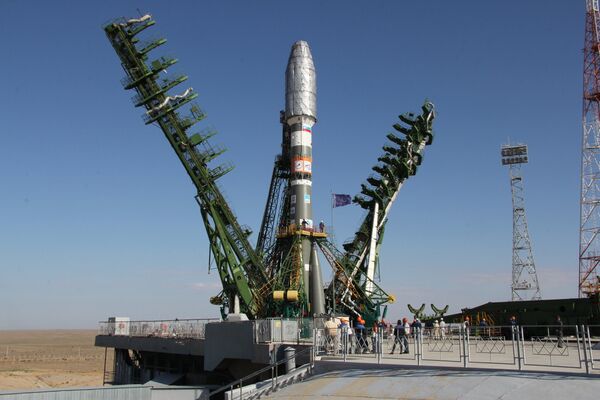MOSCOW, May 16 (RIA Novosti) – With space cooperation strained under current US-Russian relations, the US faces economic and national security threats as it does not have a credible space program, a representative of the Washington-based think tank American Security Project (ASP) said Friday.
“Our quick launch capability is hamstrung by present contracting rules and reliance on Russian technology. Our assets in space are at risk from attack that has already proven to be feasible. In order to secure critical aspects of our country’s military, a dependable and resilient space infrastructure is necessary,” the ASP said.
ASP’s Paul Hillman is optimistic about the prospects for private companies to fill the United States’ gap in space access.
“There are present capabilities right now that the United States could use. NASA already uses private companies. But the US government needs to accelerate competition between US companies in order to ensure that we have credible, strategic space access when needed,” he told RIA Novosti.
Responding to concerns on threats to the US by asymmetric attacks in space, Hillman said “our space assets aren’t guaranteed to stay in place. Hence, we need quick and strategic capability for quick launch.”
On May 13, Deputy Prime Minister Dmitry Rogozin announced plans to end Russian participation in the International Space Station after 2020. Moscow also announced its intention to halt the export of the critical RD-180 rocket engines for launching US military satellites in retaliation to sanctions levied by the US over Russia’s engagement in Crimea.
The United States retired its last space shuttle in 2011 and currently relies on Russia’s Soyuz rockets to access the ISS. NASA plans for a manned return to the Moon, to effectively replace the shuttle, were cancelled in 2010 when President Barack Obama halted funding for the Constellation mission.
On Friday, Russia’s Proton-M carrier rocket suffered an unknown failure and was lost about nine minutes after being launched from the Baikonur space center in Kazakhstan. The rocket was carrying the Express-AM4R satellite, which was to be Russia’s most advanced and powerful satellite. The crash was likely caused by a failure in one of the third stage’s steering engines.


